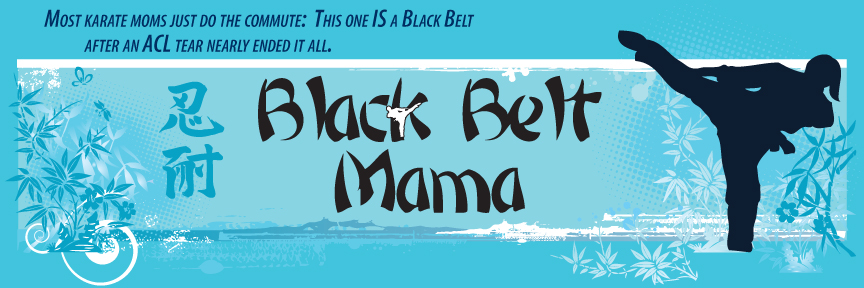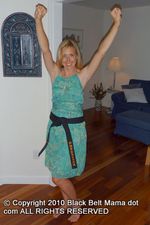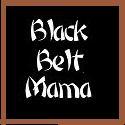January 13, 2008
Where Do You Come From?
My grandmother is 90 years old and full of stories. I’ve heard them many times, but I’m always willing to listen one more time. There is great knowledge to be learned from the elders in our families, even if that means I sometimes need to listen respectfully to tirades about dogs who lick themselves too much. Yes, being opinionated (sometimes about very odd things) runs in the family.
Likewise, there is great knowledge to be learned from those who have gone before us in our karate families. There are certain martial artists that you meet that have a special something about them. You feel that just by being around them, you’re gaining knowledge. They seem to have a calming effect on those around them. It is obvious that they possess great knowledge.
This weekend, I was able to sit down with the 9th degree black belt who runs our karate school (He also heads up the entire style of Okinawan Kenpo and Kobudo in the US). He’s an excellent teacher, good with children and adults alike. He’s patient, knowledgeable and possesses that certain something that you can’t quite put your finger on, but you just know is something important. In his book "My Journey with the Grandmaster" Kyoshi Hayes calls this quality "hinkaku" which means "the dignity of a senior."
I can’t tell you how happy I am that I asked him how he got his start in the martial arts. What followed that question was quite a story. It’s his story to tell, so I won’t go into details, but finding out details about my instructor and his instructors, what it was like in Okinawa, and how the martial arts traveled to the states was fascinating.
I know many people who take karate classes in all kinds of different styles. What I find most interesting is that if you ask people what style they study, and where it came from, most people have very little information. Maybe some feel that history lessons aren’t necessarily important to their study of the martial arts. Maybe some just never thought to ask. Personally, I see this knowledge as a piece of the puzzle. Without it, your training just isn’t quite complete.























I know what you mean about being in the presence of that greatness. The master of our style is incredible to be around and you just soak up his knowledge. I’ve been planning this sit-down with him so that I can learn about his history and how he came to create his own style. There’s this definite thirst for that knowledge because it really is so important to know about your style and about your teachers. Good to hear your knee is on the quick mend. Shodan will be here before you know it!
Karrie
“What I find most interesting is that if you ask people what style they study, and where it came from, most people have very little information. Maybe some feel that history lessons aren’t necessarily important to their study of the martial arts. Maybe some just never thought to ask. Personally, I see this knowledge as a piece of the puzzle.”
Sometimes it’s not really people’s fault that they don’t know much about their style’s background; sometimes their instructor doesn’t know, either, sometimes they just live in an itsy-bitsy town with one karate or taekwon-do club, or some sort of mutant variety of Goju Ryu (You’ll see that sort of thing all over Oklahoma), where the lineage gets almost impossible to trace.
But the reality is that yeah, lineage makes a difference in how you understand your system. Even just in buying the occasional book or videotape, or in choosing whether or not to go to a seminar. The head of our system once, so I read, translated and published Choki Motobu’s book, *Okinawan Kempo*. Since the man is not a linguist by profession, I figured that meant he thought the book was important, so when it was published yet again by someone else, I bought a copy. And you know what? I found it worthwhile.
Likewise, the taekwon-do practitioner who is interested in getting beyond the tournament stuff (this happens in Oklahoma; like I said, in a lot of small towns, the only thing available is one small taekwon-do or Goju club taught by a shodan.) will find it useful to know enough of his system’s history to know that it is basically Koreanized Shotokan, which is basically Japanized Shorin-Ryu–which might, sooner or later, lead them to picking up something by William Hayes, just for example, in search of greater insights.
You may or may not believe this, but I agree completely and without any qualifications. 🙂
I’m always probing my instructor for the history of my particular style. It’s directly traced to a particular method of Tae Kwon Do.
One specific thing I asked for more info about is the origin of our style of side kick. It looks like someone applied modern, practical physics to a traditional kick, but then I noticed the same method of side kick is used in Sambo in Russia. As it turns out, that was one tweak done within the history of my art, purely coincidental to Sambo.
Another thing that I’ve yet to get an answer on is translation of a particular black belt Bo form. During testing, the name is stated–but with no translation or understanding of what it means.
I looked at traditional Tae Kwon Do form names, and some are created in honor of historic people or battles.
No answer found for that one just yet, but I intend to know who or what I am honoring before having to perform that particular form!
Karrie- Yes, there’s something almost intoxicating about being around really high ranking martial artists. They just ooze knowledge and it’s so cool to be able to soak it up.
Dan: Yes, everyone can get something out of that book. It’s amazing.
Steve: Quick! Someone get him to a hospital. He must be burning up with delirium!!!
Hack Shaft: What’s the bo form? I study kobudo so I might be able to help or pass your question along to someone who can.
The elderly are revered in the East. Not so here.
Hinkaku – the dignity of a senior. That’s a new term I’ll have to remember.
It’s true most people don’t have much information on their style. All practitioners should be required to know the history and progenitors of their art. It won’t necessarily make them better fighters, but as you say, it’s an important piece of the puzzle.
You make me feel old. You speak of a 90-year old grandfather and my own father will soon be 84. I have no living grandparents.
I don’t personally think anyone can call them self a martial artist unless they take more than a cursory glance at their art. That might sound harsh, and obviously has exceptions, but to me it’s important to understand what you’re doing and why.
“Sometimes it’s not really people’s fault that they don’t know much about their style’s background; sometimes their instructor doesn’t know, either, sometimes they just live in an itsy-bitsy town with one karate or taekwon-do club, or some sort of mutant variety of Goju Ryu (You’ll see that sort of thing all over Oklahoma), where the lineage gets almost impossible to trace.”
That may apply to someone cut off from the outside world and technology, but I don’t think it’s justified any more. Where I live in the UK is a very small town, just my Tang Soo Do club and a TKD club really, and it’s pretty much the equivalent of ‘Hicksville’ or however you want to put it. The internet has put simple research in everyones hands, and if your instructor doesn’t know the origins of what he/she’s teaching you, that would set alarm bells ringing for me.
On a personal note I find it all fascinating, and for my own gratification have read and researched as much as I can about my art’s roots. From my own school’s history, to the original Korean Kwans, back through the Okinawan styles it comes from, and the (sometimes fantastical) stories of how forms/kata/hyung came to be. For my money martial artists (especially Dan grade and higher) should be scholars as well as fighters. That’s what I want to be seen as if and when I make Dan grade.
Sorry for coming across all opinionated, I just feel quite strongly about it. 🙂
BBM,
I study a form derived from the Joon Rhee system of Tae Kwon Do.
The particular form name is (if I remember correctly) Sang Do Moon. At a guess, it probably memorializes some battle or person named “Moon.”